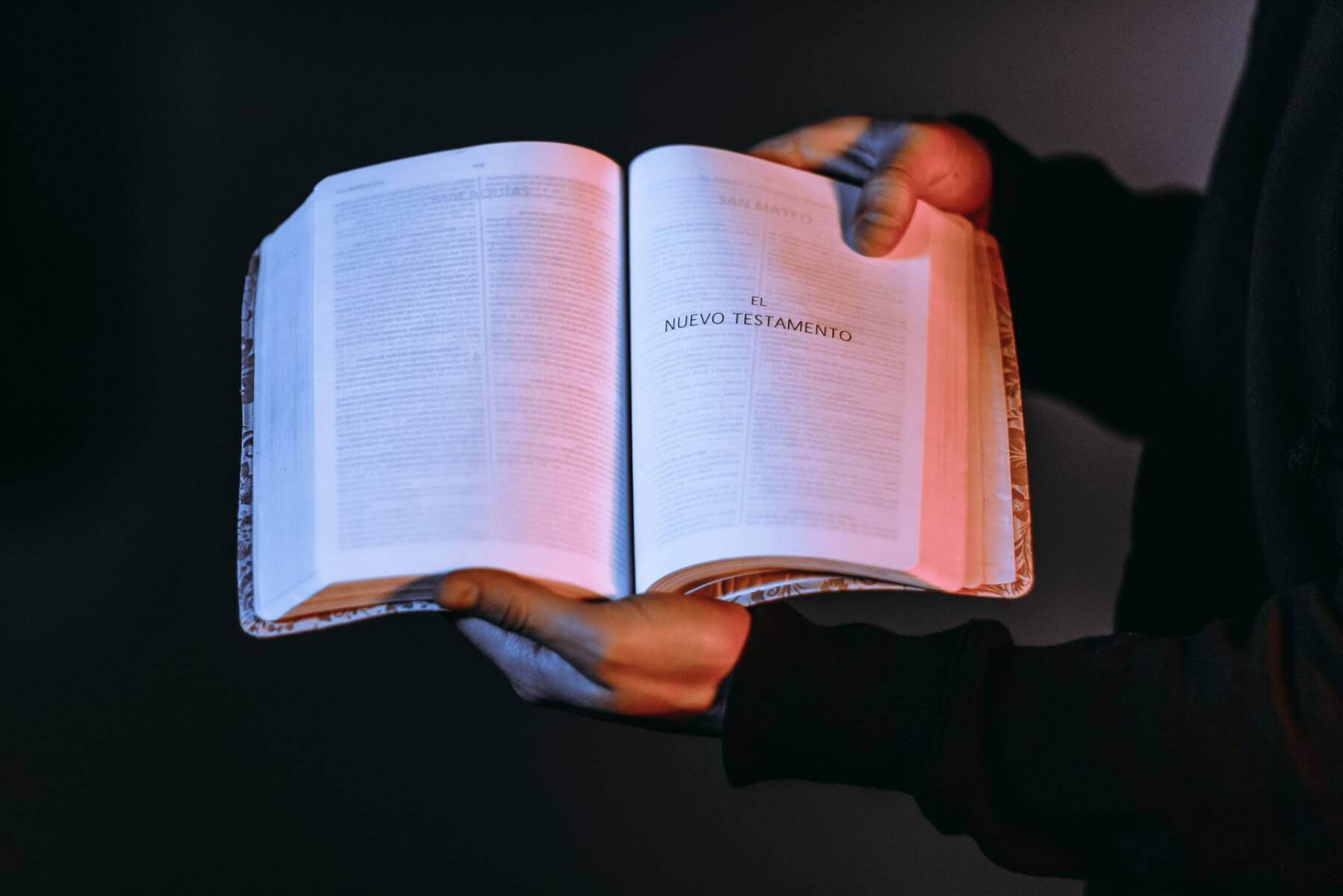Variations in interpreting the Bible have given rise to diverse denominations, each representing a unique branch within Christianity.
If you’ve heard people throw around words like “Baptist,” “Presbyterian,” or “Methodist,” and felt confused, you’re not alone. Or if you’ve driven through your town and noticed twenty different types of healthy local churches nearby and wondered why there need to be so many – you’re not alone. These describe denominations—recognized branches of Christianity.
Why Are There So Many Different Churches?
The Bible describes a single church—a gathering of believers who profess that Jesus is God’s Son and His death on the cross is the only means by which someone can receive eternal life with God (the gospel message). In the Bible, this early church was united in its beliefs—although often under threat by false teachers (2 Pet 2:1)—and the only thing that separated one church from another was its geographical location.
What Happened to the Early Church?
The early church described in the Bible, was “taken over” by the powerful Romans. They legalized Christianity in 313 AD and later restructured the church according to the model of the Roman government. The church changed drastically in terms of leadership and the services took place in Latin (which was not understood by the majority of people). The church became known as the Roman Catholic Church.
Catholics believe that the Pope is the head of the church on earth and that his words are perfect and holy. They also incorporate other practices like forgiveness through a priest (confession), and praying through Mary. They believe human tradition is equal in authority to God’s Word. None of these practices or beliefs are found in the Bible.
What Was the Protestant Reformation?
Then in the early 1500s, the Protestant Reformation took place. A Catholic priest, Martin Luther, convicted and passionate about preaching the truth directly from the Bible was kicked out of the Catholic church because of his “radical” teachings. With the help of others, he made God’s Word available in the language of the common people.
This movement led to the formation of the Protestants—a breakaway group of Christians holding to beliefs grounded firmly in the Bible. They held to five main beliefs known as the five solas:
Salvation is:
- By grace alone
- Through faith alone
- In Christ alone
- According to Scripture alone
- For God’s glory alone
The protestants, however, did not fully agree on everything regarding the interpretation of the Bible, and so many different branches, or denominations, came about—and they’re still around today.
A Quick Guide to Protestant Denominations
While all the Protestant churches hold to the five beliefs above, they differ in other ways. All the denominations celebrate the two Biblical ordinances of baptism (Matt 28:19) and communion: eating bread and drinking wine/juice to remember Christ’s death (Luke 22:19-20), but they differ in the way they are practiced.
If you’re trying to find a good church, it’s important to know the different denominations out there.
Let’s take a closer look at the common Protestant (non-Catholic) denominations.
Anglican (Church of England)
At first glance, the Church of England appears very similar to the Catholic church. The worship services are very formal and liturgical (following the Book of Common Prayer), holding to historical traditions.
The King of England is considered the head of the church and under him, archbishops watch over bishops who watch over priests (who, unlike Catholic priests, are allowed to marry) and deacons in different congregations.
The Episcopal church is identical to the Anglican church except for one statement—they claim Christ to be the head of the church. This breakaway was a result of the American Revolution and a need to re-establish themselves away from the British Monarchy.
Anglicans practice infant baptism, as a blessing and a way to welcome a child into the church community even though this differs from baptism as described in the Bible.
Baptist
The Baptist church was formed as a breakaway from the Anglican church. It gets its name as it holds strongly to the ordinance of baptism by full submersion as a public declaration of faith after someone becomes a Christian (believer’s baptism). The worship services vary but are often less formal, yet still structured with prayer time, tithes and offerings, songs and hymns, and preaching from the Word.
The church acknowledges Christ as the head and many are congregation-led, or governed by a group of elders or a single pastor.
If you’re currently at a Baptist church, but were baptized as a baby in another denomination, check out this post on whether or not you should be baptized again.
Charismatic and Pentecostal
Charismatic and Pentecostal churches hold many of the same practices as other Protestant churches like baptism, communion, singing, preaching, etc. But they also place a big emphasis on the baptism of the Holy Spirit—which teaches that a new believer should show immediate evidence of a supernatural spiritual experience as a result of the Holy Spirit filling them.
They also believe that the spiritual gifts that the apostles displayed at the beginning of the early church in Acts 2 of the Bible are still applicable today, like speaking in tongues (different languages), prophecies, and faith healing. That said, plenty of other denominations emphasize healing, many utilizing John Hagee’s healing scriptures and prayers.
These churches are usually congregation-led with a minister serving to preach.
Lutheran
The Lutheran church (named after Martin Luther – the father of the Reformation) holds quite formal services (some more than others) where the pastor wears specific garments and follows a structured program (liturgy) through the service including confession, absolution, and citing the Nicene creed (a set of beliefs learned by heart).
They practice the Lord’s table, and baptism (by sprinkling or pouring water on the head). Many are governed by the congregation but some have a hierarchy of leadership.
Methodist
Another breakaway church from the Church of England is the Methodist church. Students John and Charles Wesley developed a key focus on living holy lives as believers. This focus eventually led to a new denomination. Services tend to be quite structured following a pattern of singing, and scripture readings from the Revised Lectionary (shared book of scripture readings).
Methodists practice infant baptism, as well as adult baptism (through sprinkling water on the head—not full submersion).
Non-Denominational
The Non-Denominational church is a break away from associating with any particular denomination with the aim to be led by the Bible alone. This movement began in the 1700s. They are governed by elders and services can vary but tend to be less formal while still following a pattern of prayer, praise, and preaching.
Many would describe the church as similar to the Baptists but more charismatic in their worship.
Presbyterian
Based on the convictions of the French theologian, John Calvin and John Knox (a Scottish priest) during the Reformation, the Presbyterian church was born. A summary of their beliefs was published as the Westminster Confession of Faith in the 1640s.
With a strong emphasis on the preaching of God’s Word, services tend to be very formal and structured—following a liturgical pattern. The churches are governed by a team of elders and they practice the ordinance of communion and, like the Methodists, infant baptism.
Which Church is Right for Me?
Going to Church doesn’t make you a Christian, but it’s crucial believers be plugged into a local body. Choosing a church can be overwhelming, especially considering how many choices there are! The simplest way to decide is to ask yourself if the beliefs and teachings of the church agree with what you see in the Bible—God’s Word.
Answering the following questions can help.
- How does this church describe God? The One true God, the Creator, Eternal Spirit, etc. (Deut 6:4)
- What does this church believe about Jesus? He is fully God and came to earth, took on the form of a man to live a perfect life, and die on the cross in our place, then rise again, having conquered death. He is the only way to the Father, the only way one can be saved. (John 14:6)
- What does this church believe about God’s Word? It is pure, complete, and sufficient. It is holy and breathed out by God. It doesn’t need anything added to it. It is relevant for Christians today. (2 Tim 3:16-17)
Being an active part of a God-honoring church is a biblical response to His redeeming work in your life. It’ll encourage you, help you mature as a Christian, and allow you to serve and love others as they grow in their faith. Don’t miss out! Remember, the church is called the body of Christ—God delights in working through his followers!
Hebrews 10:24-25 (ESV) And let us consider how to stir up one another to love and good works, not neglecting to meet together, as is the habit of some, but encouraging one another, and all the more as you see the Day drawing near.





